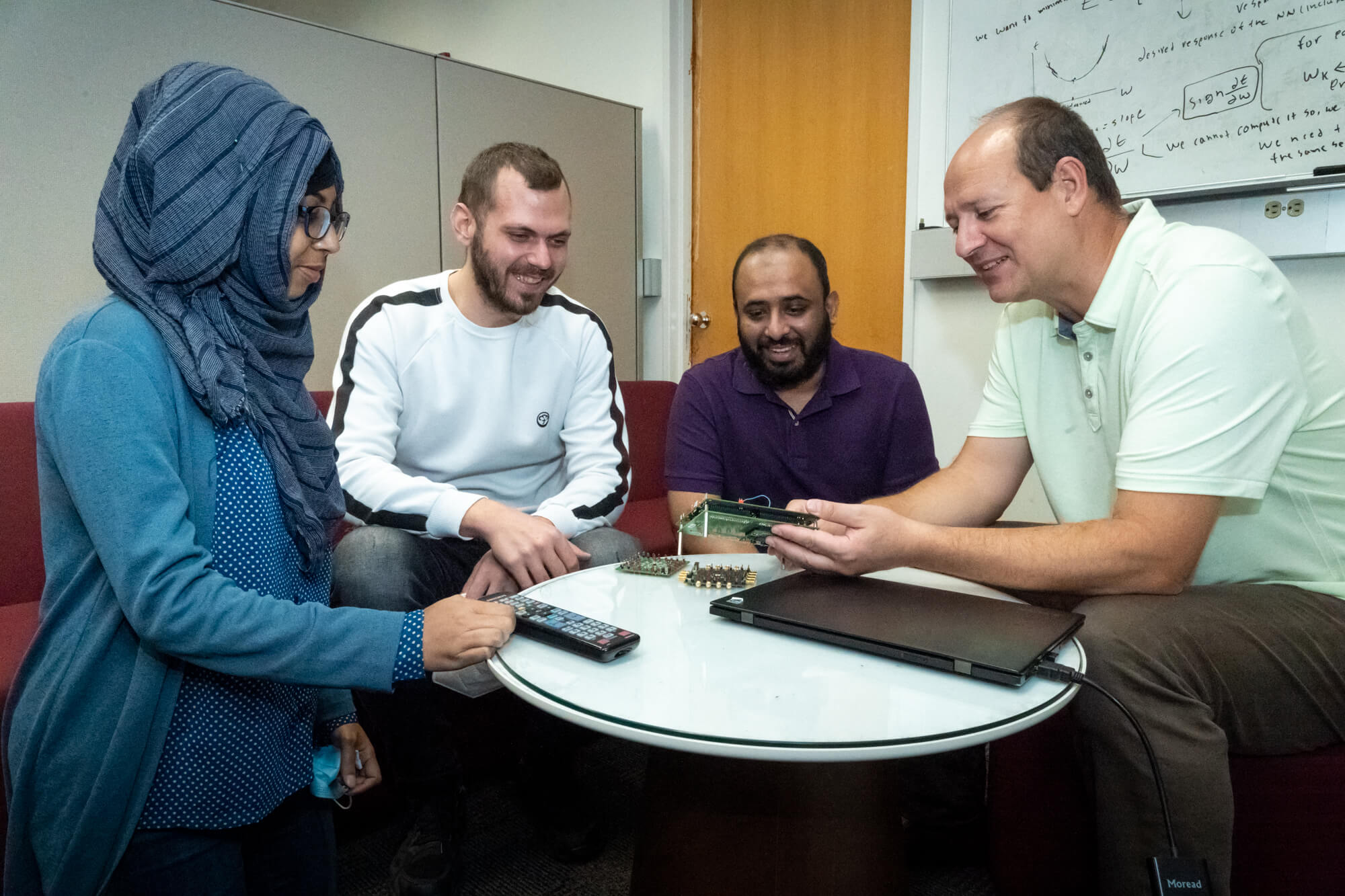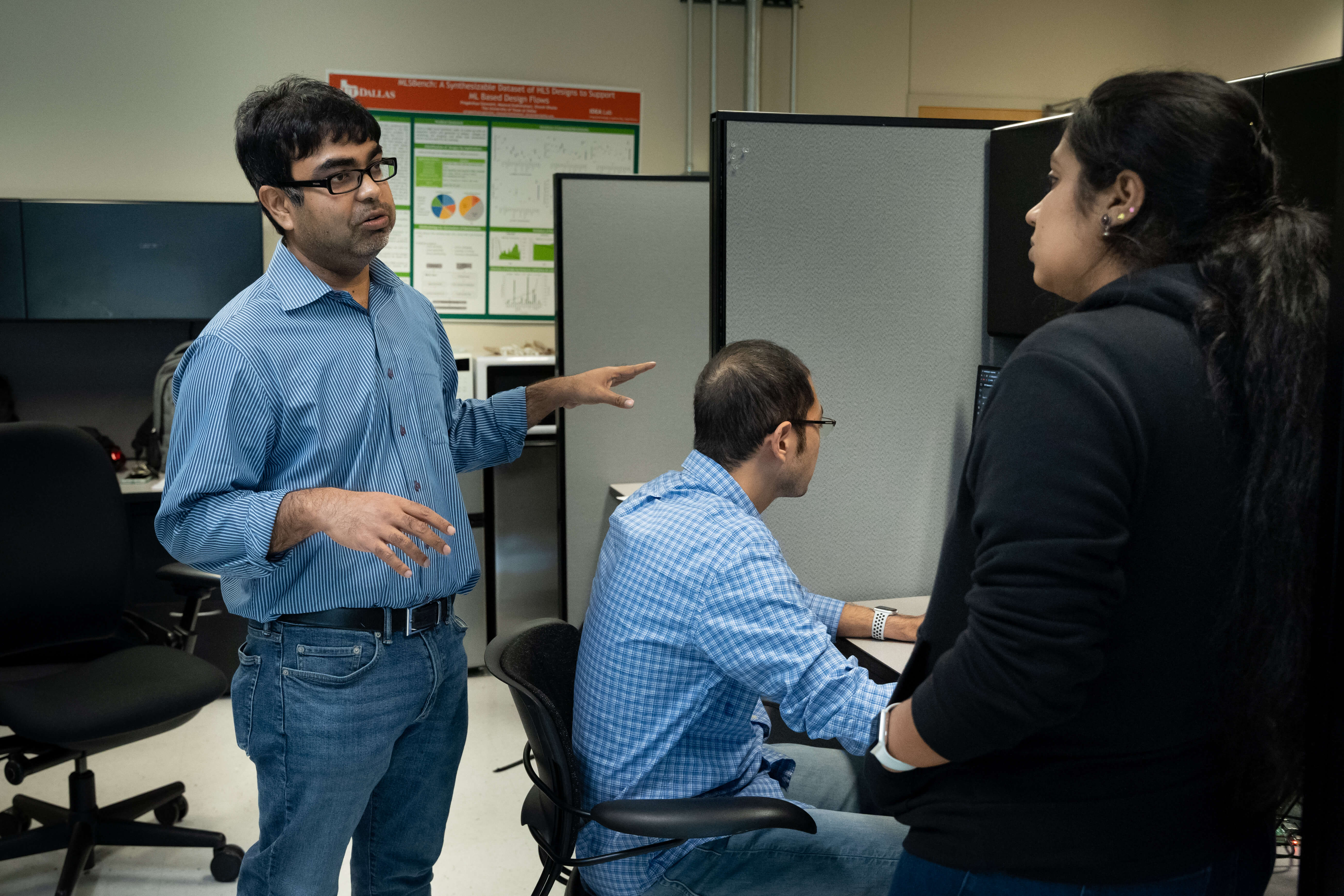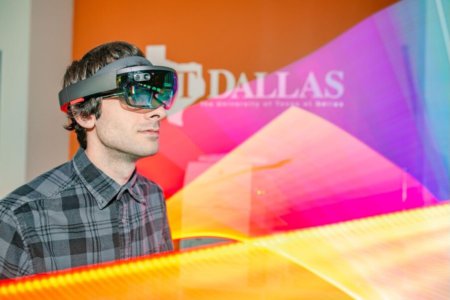High-tech competencies are often credited to an advanced learning experience. To find one, look no further than The University of Texas at Dallas (UTD), Department of Electrical and Computer Engineering (ECE) in the Erik Jonsson School of Engineering and Computer Science. Here, students prepare for future-focused careers with help from an industry-leading faculty and great opportunities to engage in research. It’s a combination that enables outstanding outcomes. Just ask Jeremy Chaney.
He graduated with a Master of Science in Electrical Engineering with a concentration in Microelectronics in 2020 before joining the Integrated Circuit Design team at Maxim Integrated.
“My time with UTD ECE familiarized me with the tools and concepts that I use daily in the industry, as well as the ability to adapt to new technologies as the industry advances,” he says. “I met representatives of the company at the university’s career fair which led to this job. I can’t stress enough how important it is to go to those.”
UTD ECE is a research powerhouse known for addressing complex technical problems with computing and science-based approaches. Little wonder why it’s loved and trusted by the industry. For those vying to carry on its legacy, the Master of Science in Electrical Engineering (MSEE), the Master of Science in Computer Engineering (MSCE), and the Master of Science in Telecommunications Engineering (MSTE) –– all of which serve as ideal stepping stones to doctoral success.
The first provides a superior education through five concentration areas — Circuits (which also includes RF and microwave), Computing Systems, Devices, Power Electronics and Energy Systems, and Signals and Systems (which also includes machine learning and communications).
The second concerns the design, construction, implementation, and maintenance of software and hardware components of modern computing systems and computer-controlled equipment. It helps learners develop a broad understanding of both algorithms/software and circuitry/hardware.
The MSTE provides students with an excellent education in modern communications networks and systems. Graduates are highly qualified for rewarding and successful careers in a diverse range of telecommunications engineering fields.

The MSEE, MSCE, and MSTE programs serve as ideal stepping stones to doctoral success. Source: UT Dallas
Those with a solid foundation in the above could advance their knowledge and enhance their employability with a PhD instead. UTD ECE offers comprehensive Doctor of Philosophy programs in Electrical Engineering, Computer Engineering, and Telecommunications Engineering.
Every PhD aspirant that chooses UTD ECE is in for an exploratory journey of a lifetime. It all begins in the laboratory and there are many at UTD in myriad research areas including: Circuits (Circuit design); Computing (including EDA and hardware security); Electronic Devices; Power Electronics and Energy Systems; Signals and Systems (including next-gen communications using applied machine learning and signal processing); and Embedded Systems. The research their students accomplish contributes to changing the world for the better. ECE students and their faculty members are regularly attending top conferences and winning awards based upon the research done here in the heart of Dallas Fort Worth.
“The research in my laboratory is the direct product of the work of my students,” says Professor Carlos Busso. “They are the ones that brainstorm ideas, code machine learning solutions, and evaluate the effectiveness of these methods. My role is to guide and direct their efforts, so they can be well trained as successful professionals once they graduate.”
True enough, Busso’s graduates are now leading research efforts in Amazon, Google, Samsung, and AT&T, amongst other organizations. His efforts to produce more in-demand professionals continue in the Multimodal Signal Processing Laboratory, where he supervises students of all levels and conducts lessons on math, applied machine learning, as well as signals and systems.

UTD ECE offers comprehensive Doctor of Philosophy programs in Electrical Engineering, Computer Engineering, and Telecommunications Engineering. Source: UT Dallas
Meanwhile, Assistant Professor Kanad Basu specializes in hardware security and digital circuits. Having worked for organizations like IBM, Synopsys, and Intel, Basu provides a breadth of knowledge that supplements the standard textbooks. He leads the Trustworthy and Intelligent Embedded Systems (TIES) Laboratory, where tomorrow’s engineers are preparing to combat cyberattacks, improve national security, bolster the economy, and maintain the US’s reputation as a leader in the semiconductor domain. There’s never been a better place for this training.
“UTD ECE is located in the DFW area, which is home to several semiconductor companies, like Texas Instruments, Raytheon, Samsung, etc.,” Basu explains. “Close proximity to these organizations provides ample employment and internship opportunities for our budding researchers.”
To prepare learners for all manner of possibilities, UTD ECE keeps them versatile. Here, interdisciplinary teaching and learning are big. In fact, Professors Busso and Basu have collaborated on several occasions. However, Professor Yiorgos Makris takes integration to new heights. “I would have to think hard in order to list topics that we do not cover as a department,” he says.
Makris is leading the intersection between circuit design and hardware security research, which is growing at rapid-fire speed. Researchers from other domains –– such as wireless communications, VLSI design, RFIC design, power electronics, computer architecture, and semiconductor fabrication –– have been quick to step in, offering many exciting opportunities for students with diverse aspirations.
“Considering the intense need of the semiconductor industry for engineers that are well-versed in machine learning, circuit design, security, and reliability; UTD is uniquely positioned to produce students with the appropriate background to make a difference in this field,” he says.
To become one of them, click here to learn more about UTD ECE.













